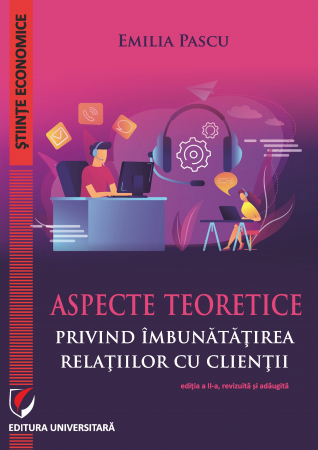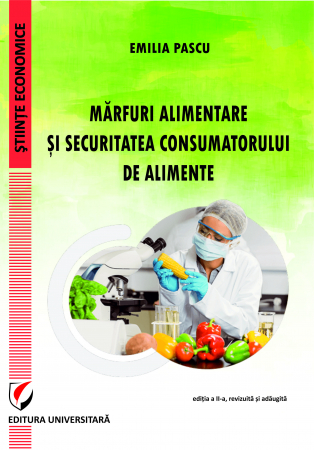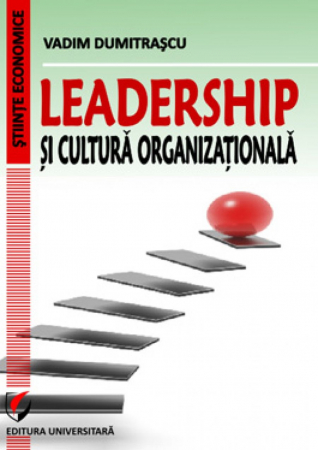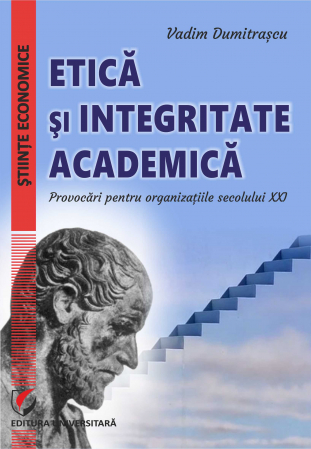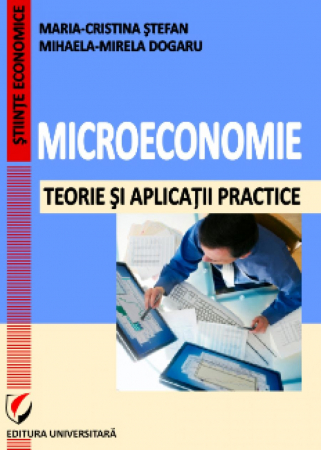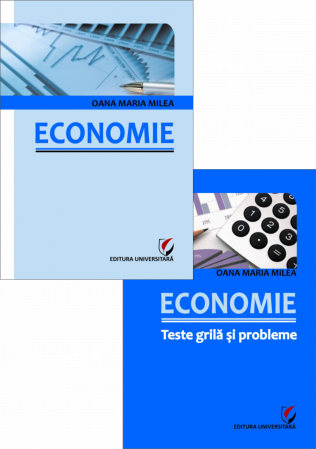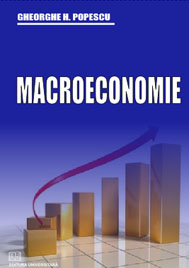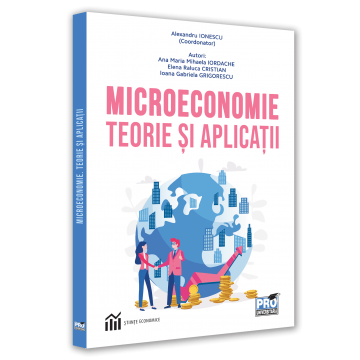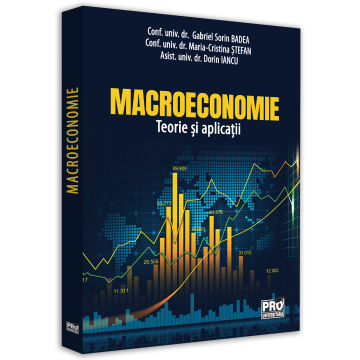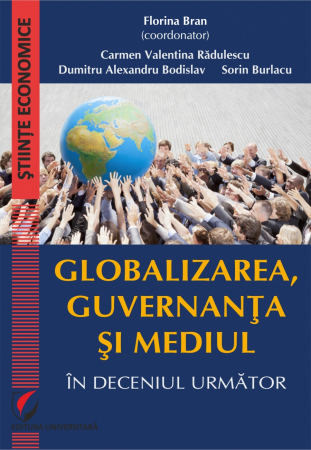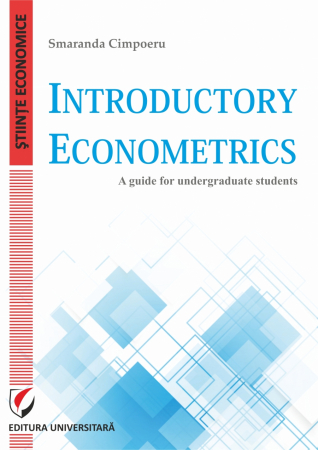6359.png) Transformational economy. Applied governance and artificial intelligence - Dumitru Alexandru Bodislav
Transformational economy. Applied governance and artificial intelligence - Dumitru Alexandru Bodislav
Publisher: Editura Universitara
Author: Dumitru Alexandru Bodislav
Edition: I
Pages: 132
Publisher year: 2024
ISBN: 978-606-28-1767-1
DOI: 10.5682/9786062817671
- Description
- Download (1)
- Content
- More details
- Reviews (0)
-
Transformational economy. Applied governance and artificial intelligence - Dumitru Alexandru Bodislav
Download
INTRODUCTION / 9
CHAPTER 1. ANALYSIS OF INCOME INEQUALITY IN THE RELATIONSHIP BETWEEN INSTITUTIONS AND ECONOMIC GROWTH / 13
1.1. THE EFFICIENCY OF ASSESSING THE RELATIONSHIP BETWEEN INCOME AND INSTITUTIONAL SPECIFICITIES / 21
1.2. EXAMINATION OF THE RELATIONSHIP BETWEEN INCOME INEQUALITY AND ECONOMIC GROWTH AT THE LEVEL OF THE EUROPEAN UNION / 22
1.3. ANALYSIS METHODOLOGY OF INCOME INEQUALITY AND ECONOMIC GROWTH AT THE LEVEL OF THE EUROPEAN UNION / 26
CHAPTER 2. TELEWORK – EFFECT OF THE COVID 19 PANDEMIC AND ECONOMIC GROWTH MODEL / 30
2.1. THE EVOLUTION OF TELEWORK – ANALYSIS OF THE EFFECTS OF THE COVID 19 PANDEMIC ON THE ROMANIAN ECONOMY AND SOCIETY AT THE LEVEL OF THE EUROPEAN UNION / 30
2.1.1. Analysis of specialized literature in the field of telework and testing using data mining / 31
2.1.2. The ideas generated from the analysis of the acceleration of telework and the economy post COVID 19 / 38
2.2. THE ECONOMIC GROWTH MODEL BASED ON TELEWORK / 40
CHAPTER 3. SYNERGY BETWEEN CORPORATE GOVERNANCE AND THE GOVERNMENT NEEDS OF AN EMERGING COUNTRY / 46
3.1. "HEALTHY" LEVEL OF ECONOMIC GROWTH / 46
3.2. HOW TO DEVELOP A SUSTAINABLE ECONOMY USING A CORPORATE MODEL / 49
3.3. CREATION OF THE "PROBLEM SOLVER" MODEL / 51
CHAPTER 4. TRANSFORMATIONAL MACROECONOMIC MIMETISM - RESILIENCE GENERATED BY SIMULATING A NATIONAL ECONOMY / 58
4.1. SPECIALIST LITERATURE IN THE FIELD OF INVESTMENT FUNDS AND DECISION AUTOMATION / 60
4.2. EMPIRICAL ANALYSIS OF CLOSED INVESTMENT FUNDS / 66
4.3. ANALYSIS OF FINANCIAL DATA AND BUSINESS INTELLIGENCE USED IN THE BUSINESS-AUTOMATED DATA ECONOMY (B.A.D.E.M.) MODEL / 68
4.4. METHODOLOGY FOR THE DEVELOPMENT OF AN INNOVATIVE ECONOMIC MODEL – B.A.D.E.M. / 71
SYNERGY OF CONCLUSIONS – TRANSFORMATIONAL ECONOMY BASED ON ARTIFICIAL INTELLIGENCE IMPLEMENTED IN THE DECISION-MAKING PROCESS / 102
Predicting recessions and business cycles: the potential of AI to improve economic policy / 106
The future relationship between Artificial Intelligence and the evolution of politics and ideologies / 110
BIBLIOGRAPHY / 114
Among the key characteristics of the transformational economy are the following:
• It is irreversible and unidirectional, which means that once a society moves from one economic moment to another, it does not return to the previous one. For example, agriculture did not regain its dominance after the industrial revolution overtook it as the dominant sector;
• Along with this, four types of capital have evolved: natural, human, social and technological. These types of capital represent the assets that support economic growth and activity. According to transformational economics, these forms of capital fluctuate in importance and availability over time;
• It is affected by the global environment, which means that the interactions and rivalries between different nations and geographies determine the speed and course of change. For example, two important factors influencing the way economies change today are globalization and digitization;
• It has a substantial impact on well-being as it has an effect on social cohesion, income, employment, education and health of the population. Depending on how people and communities adapt to the changing environment, the transformational economy can present both new opportunities and problems.
This book provides an overview of the current state-of-the-art methods and uses of Artificial Intelligence approaches for rational decision-making under conditions of uncertainty, complexity, and risk.
A book about artificial intelligence and government decision-making can stimulate new research in economics, and in this case it is a support for providing examples and case studies of how artificial intelligence can solve real-world problems in different areas of economics, such as interstate conflict, credit scoring, cancer diagnosis, health monitoring, optical character/image processing and recognition, and helps introduce databases and the challenges of knowledge representation and reasoning, probabilistic reasoning, logical reasoning, and probabilistic reasoning. common sense for decision making. Showing how Artificial Intelligence can improve the analysis and design of economic models, policies and systems, such as game theory, mechanism design, social choice, behavioral economics and agent-based modeling is another complementary way forward.
Researchers, students, practitioners and policy makers who are interested in exploring the possibilities and constraints of artificial intelligence for sound economic decision-making can see the gross added value generated by this book on transformational economics from an AI and governance perspective, all filtered through the rigors of transparent markets, dedicated to the advancement of humanity which is in a new moment of exponential development.
February 2024
university professor Dr. Florina BRAN
Customer Support Monday - Friday, between 8.00 - 16.00
0745 200 718 0745 200 357 comenzi@editurauniversitara.ro
![Transformational economy. Applied governance and artificial intelligence - Dumitru Alexandru Bodislav [1] Transformational economy. Applied governance and artificial intelligence - Dumitru Alexandru Bodislav [1]](https://gomagcdn.ro/domains/editurauniversitara.ro/files/product/large/economie-transformationala-guvernare-aplicata-si-inteligenta-artificiala-725156.jpg)

